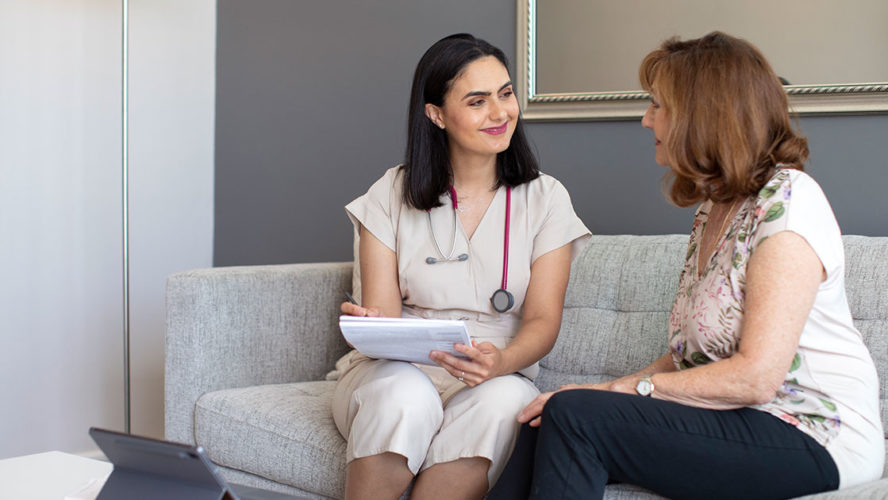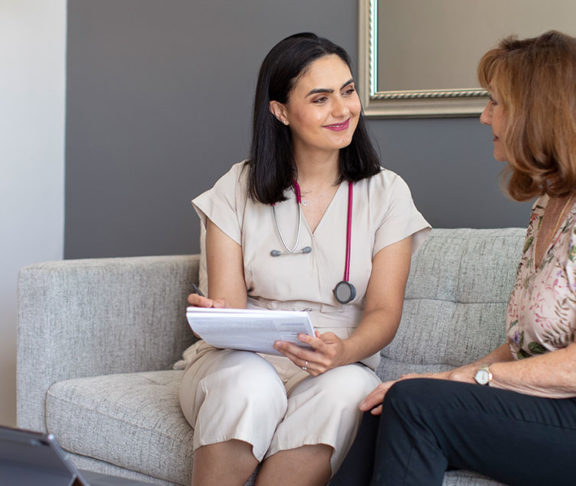Identifying ways to meaningfully disseminate evidence-based menopause management recommendations to medical trainees and practicing clinicians is critical to closing the gap in menopause care.

Juliana M. Kling, M.D. M.P.H., NCMP, IF, FACP
Women’s Health Internal Medicine, Mayo Clinic; Lead for Women’s Health in Menopause, American Medical Women’s Association
In the United States, more than a million women experience menopause each year. Menopausal symptoms are common, with more than 75% of women reporting hot flashes and night sweats. Direct and indirect healthcare costs associated with untreated symptoms are estimated at nearly 400 billion dollars annually, not including negative effects on work productivity and overall quality of life.
Despite these impacts, most symptomatic women go untreated. Studies have shown that doctors in training across specialties may not be well- educated or feel prepared to diagnose and manage menopausal symptoms. Given the
staggering number of symptomatic menopausal women and the negative impact menopause can have, it is important for clinicians responsible for the care of women to engage in menopause and management.
Impact and effects
Menopause, defined as 12 months past the final menstrual cycle, is an experience all women who live to their 50s will experience. The average age of menopause in the U.S. is 51 years. Hot flashes and night sweats, known as vasomotor symptoms (VMS), are some of the most reported symptoms. Other symptoms include joint pain, sleep disturbances, cognitive fog, mood changes, and sexual dysfunction. Menopausal hormone therapy (HT) is the most
effective treatment for VMS.
A 2022 position statement from the North American Menopause Society supports consideration of HT for treatment of symptomatic women less than age 60 or within 10 years from the final menstrual cycle without contraindications such as breast cancer, heart disease, or liver disease. Women with contraindications may seek nonhormonal options to treat quality of life impacting symptoms.
Identifying ways to meaningfully disseminate evidence-based menopause care management recommendations to medical trainees and practicing clinicians is critical to closing the gap in menopause care. The American Medical Women’s Association has developed the program “Check in on Menopause” to educate physicians and encourage conversations about menopause.
This telehealth model of care addressing the needs of perimenopausal and postmenopausal patients is one tool that could help close this gap. As the number of symptomatic menopausal women increases, we will need to ensure that adequate numbers of trained clinicians are prepared to provide menopause care to women in midlife.

